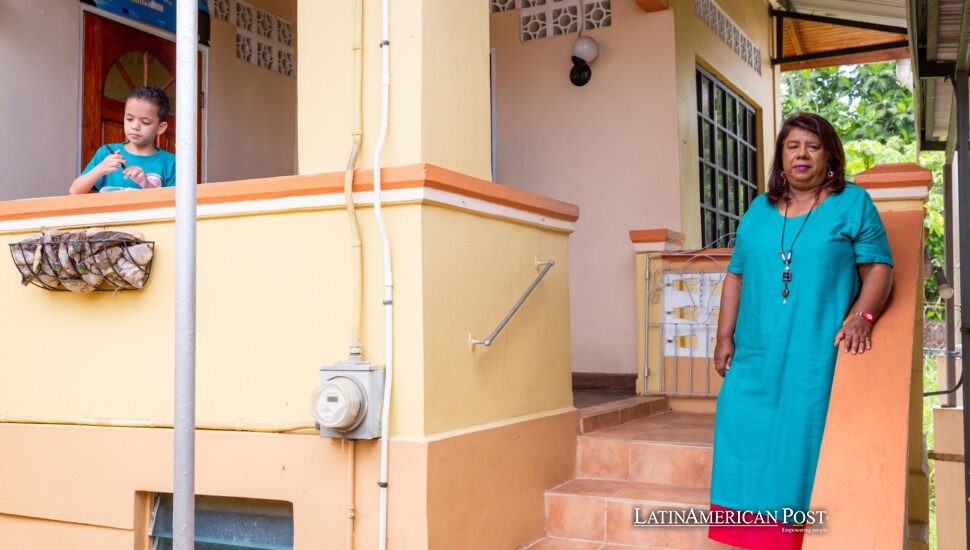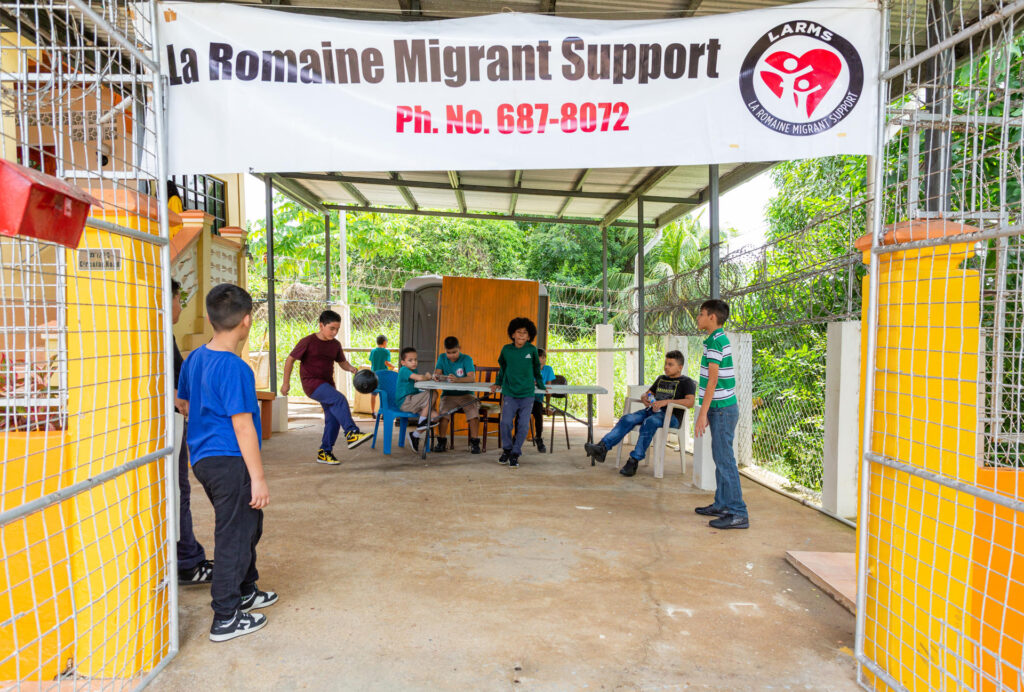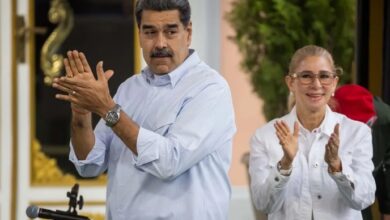Venezuelan Children Deserve Classrooms, Not Sidewalks, in Trinidad and Tobago

On Trinidad’s blistering sidewalks, Venezuelan children crouch beside traffic lights, their small hands open while adults plead for coins. Behind every outstretched palm lies another kind of exile—closed classroom doors, missing papers, and the trauma of a crossing no child should have to make.
Sidewalks Instead of Schoolrooms
In southern Trinidad, two siblings sit on the curb while a man—perhaps their father, maybe not—calls out to passing cars. Their journey from Tucupita, Venezuela, to Icacos took twenty minutes by boat, but the distance between where they came from and where they now stand feels immeasurable. Their classroom is the pavement; their lessons are in survival.
“Although the Child Act prohibits using or allowing a child to beg, we see many children on the streets,” said Angie Ramnarine, coordinator of the La Romaine Migrant Support Group (LARMS), in an interview with the EFE. She runs a small learning space in San Fernando, where she sees children “exposed to sun or rain” while adults collect alms at intersections and outside malls.
Their presence, she said, is not a mystery. It’s the result of a bureaucratic chokehold that keeps thousands of Venezuelan minors out of school. By 2024, the Living Water Community had registered nearly 4,000 Venezuelan children aged 5–17 as refugees or asylum seekers, yet only 1,462 had access to education through UNHCR’s Equal Place program.
Numbers this stark are not statistics; they are verdicts. Every child without a classroom becomes more vulnerable—to trafficking, to hunger, to despair.
When Law Falters, Exploitation Thrives
Trinidad’s Child Authority recorded 60 cases of child begging in 2023, including 24 Venezuelan minors, though frontline workers believe that number barely scratches the surface. “Enforcement is minimal,” Ramnarine told the EFE, and in that vacuum, an informal economy of pity has emerged.
“Adults receive more compassion when they bring children,” she said. Some parents, desperate, “rent” their kids for 50 Trinidad and Tobago dollars a day, while others use their own children to draw donations. A single beggar can earn 500 to 600 dollars—more than many day laborers.
It’s an economy built on heartbreak. “Poverty is being arbitraged through children,” Ramnarine said flatly.
For parents without legal avenues to enroll their kids in school, every choice feels wrong. Some leave children locked inside small apartments while they work; others bring them to the streets. Neither is safety. But when formal education remains out of reach, desperation fills the gap.
In 2019, Ramnarine and a coalition of the Catholic Church, UNHCR, and Living Water Community created an alternative—four community schools in Penal, Arima, Carapichaima, and San Fernando. There, migrant children learn literacy and math, share hot meals, and receive medical checkups. These improvised classrooms are lifelines, built from compassion, not policy.
“We’re keeping dignity alive,” she said. “But this shouldn’t fall on volunteers. It should be the state’s job.“
Paper Walls and Shut Doors
To understand the problem, listen to the paper trail. “Not all of us are registered, and only with the proper permits and documents—a migrant card, translated birth certificate, vaccination card, proof of address, passport photo—can a child enter,” said Isabella Pérez, a Venezuelan mother whose 10-year-old daughter was denied a primary school seat, speaking to the EFE.
Even families who meet those requirements often find schools full or unwilling. A Ministry of Education official told the EFE that in September 2024, only 60 of 200 Venezuelan applicants were accepted into public schools.
It’s a bureaucratic math problem in a country of just 1.5 million people, now hosting more than 40,000 Venezuelan migrants—one of the hemisphere’s highest rates per capita.
The gaps create more than lost schooling; they create lasting wounds. Venezuelan psychologist Livia Rincón, cited in an IOM report, found children gripped by anxiety, separation fears, and insomnia—psychological echoes of rough sea crossings and weeks spent hiding.
“Many of these children cannot read or write,” said Emilys Bastardo, a Venezuelan teacher now living in Trinidad, in remarks to the EFE. Each year, outside the classroom, the deficit deepens. Each rejection letter pushes another child toward the street.
For them, the future narrows down to two choices: being invisible or being exploited.

What a Responsible Response Looks Like
This is not just a migration story—it’s a child protection emergency.
A humane response begins with enforcement that protects, not punishes. Trinidad’s laws already prohibit child begging, but enforcement must become consistent and compassionate. Trained child-safety patrols should remove minors from exploitative situations the same day and place them in safe shelters or learning spaces.
Second, access to education cannot wait for perfect paperwork. Expand community classrooms like those run by LARMS, deploy mobile teaching teams to neighborhoods where families cluster, and build a bridge-to-school program that tests children by ability, not by the completeness of their file.
Third, simplify enrollment. A one-stop process—run jointly by the government, UNICEF, and UNHCR—could review documents, issue temporary IDs, provide vaccinations, and assign school start dates during a single visit, with translators available for Spanish-speaking parents.
Fourth, protect the families who seek help. Parents will not step forward if they fear deportation. Confidential reporting lines and “firewall” policies, which separate schools from immigration enforcement, are essential.
Finally, address the invisible wounds. Embed psychologists and counselors in classrooms, train teachers in trauma-informed care, and involve Venezuelan educators already in the community. The trauma that psychologist Rincón described does not fade on its own. It requires sustained attention.
Trinidad and Tobago did not cause Venezuela’s collapse, but it now carries its human fallout. That reality comes with limits—and responsibilities. “We teach literacy and numeracy, we provide meals, we offer play,” Ramnarine said. “Childhood is ordinary on purpose.“
She’s right. Childhood is supposed to be ordinary—filled with books, not begging; laughter, not exhaustion.
Also Read: Venezuela’s Nobel Moment: María Corina Machado’s Triumph and the Trials Ahead
Until schools open their doors and policy meets compassion, Trinidad’s sidewalks will continue to do a job they were never meant to do: stand in for a classroom. And every day they do, the region loses something more than potential. It loses the sound of children learning, dreaming, and belonging—the sounds a healthy society depends on most.





